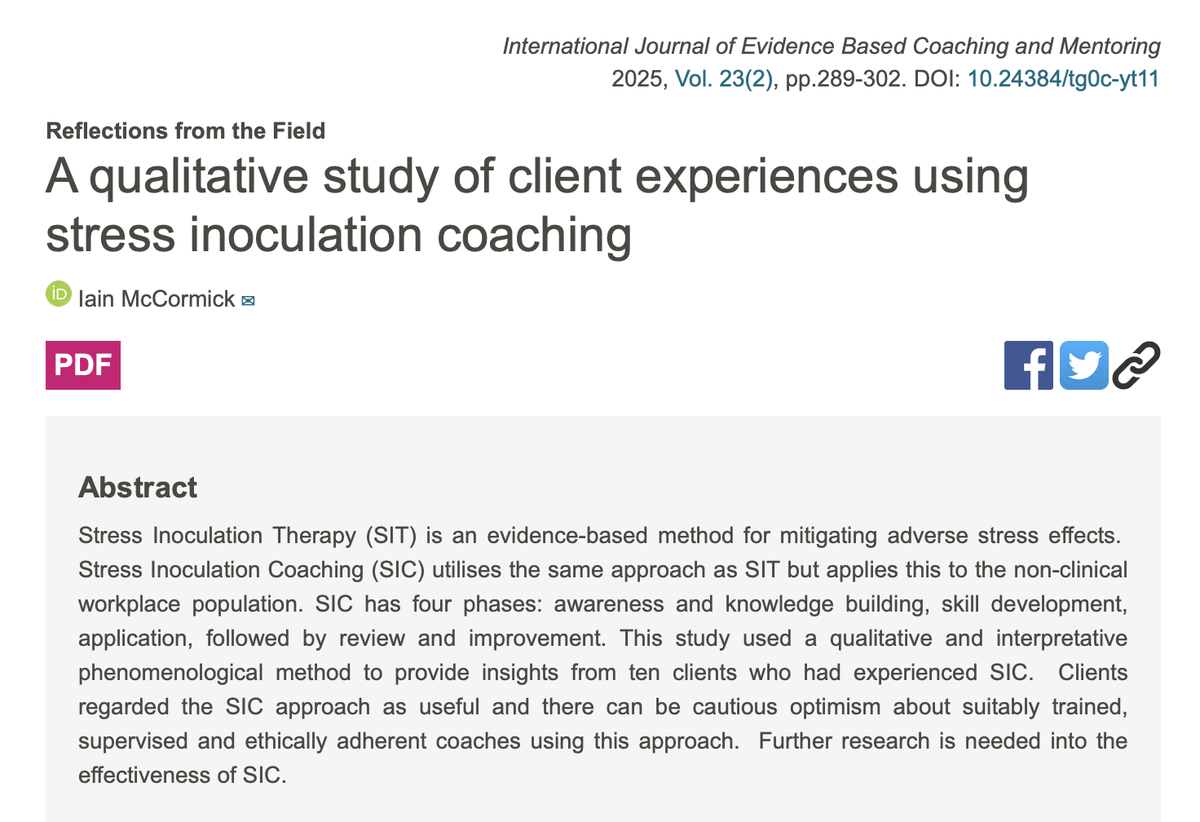
Schema Coaching Techniques part 5: Emotional Exposure
The current paper, the fifth in the series, explores the schema approach of emotional exposure. This is a type of evidence-based approach that aims to help clients confront their fears in a safe and supportive environment. This approach generates painful but tolerable emotions and so disrupts the usual avoidance behaviour which fuels the client’s fears. Exposure coaching may be undertaken in several ways. For example, in vivo exposure involves the client directly facing the feared situation or activity in real life. Imagined exposure involves the client facing the fear in their imagination. Virtual reality exposure uses technology to enable contact with the fear. Interoceptive exposure involves deliberately generating physical sensations that are unpleasant but harmless so that the client can learn that these are not dangerous or life threatening. Exposure can be undertaken at a range of different speeds. Graded exposure is where the client works slowly through a fear ladder or hierarchy, which consists of an array of feared activities or situations which are ordered from easiest to face, to most troubling. Flooding which involves helping the client rapidly face their most feared activities or situations for a period until their anxiety decreases. Systematic desensitisation combines deep muscle relaxation exercises with the graduated use of feared activities or situations and so helps the client deal with the exposure in a more comfortable manner. This evidence-based technique can be a useful component of schema coaching.










